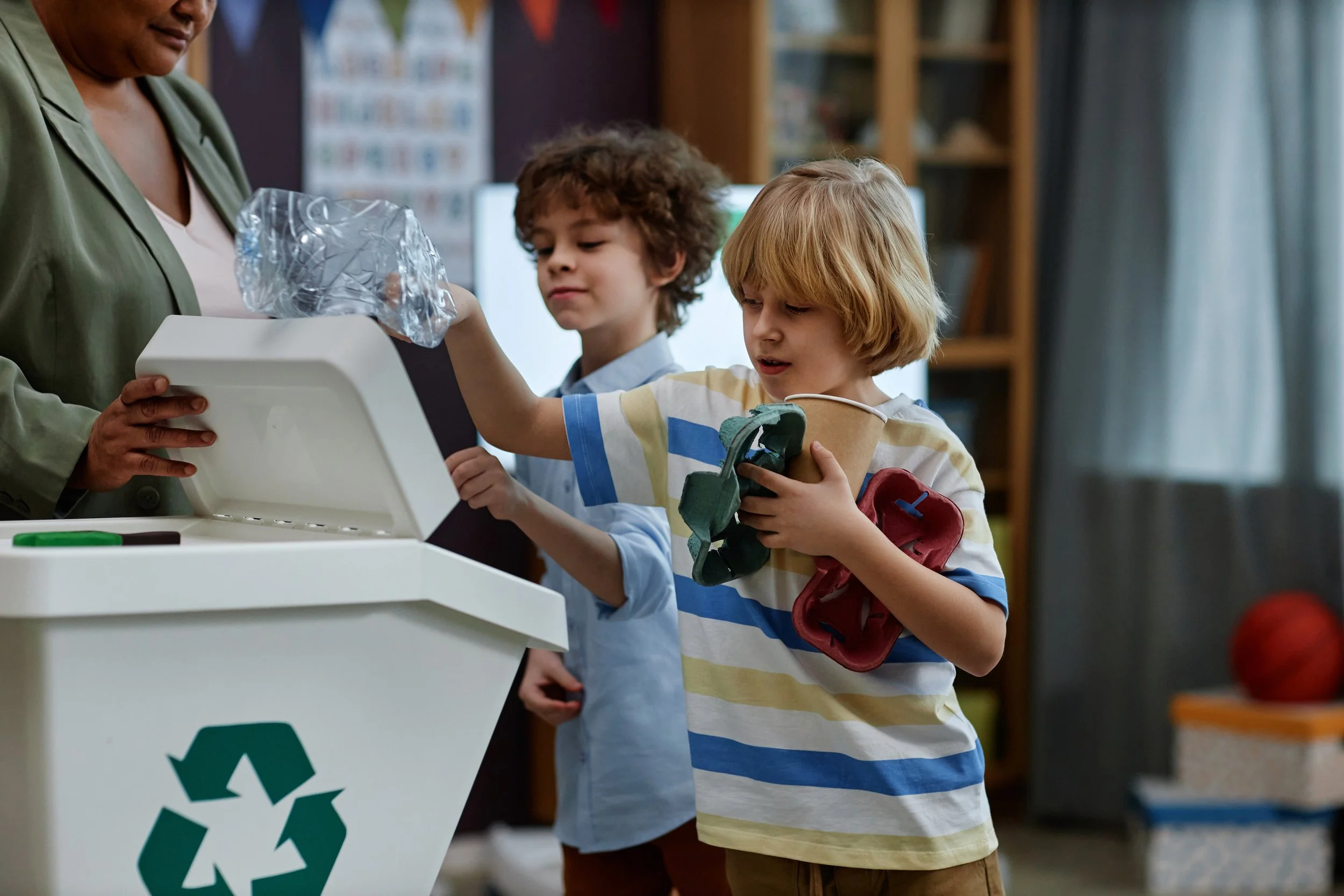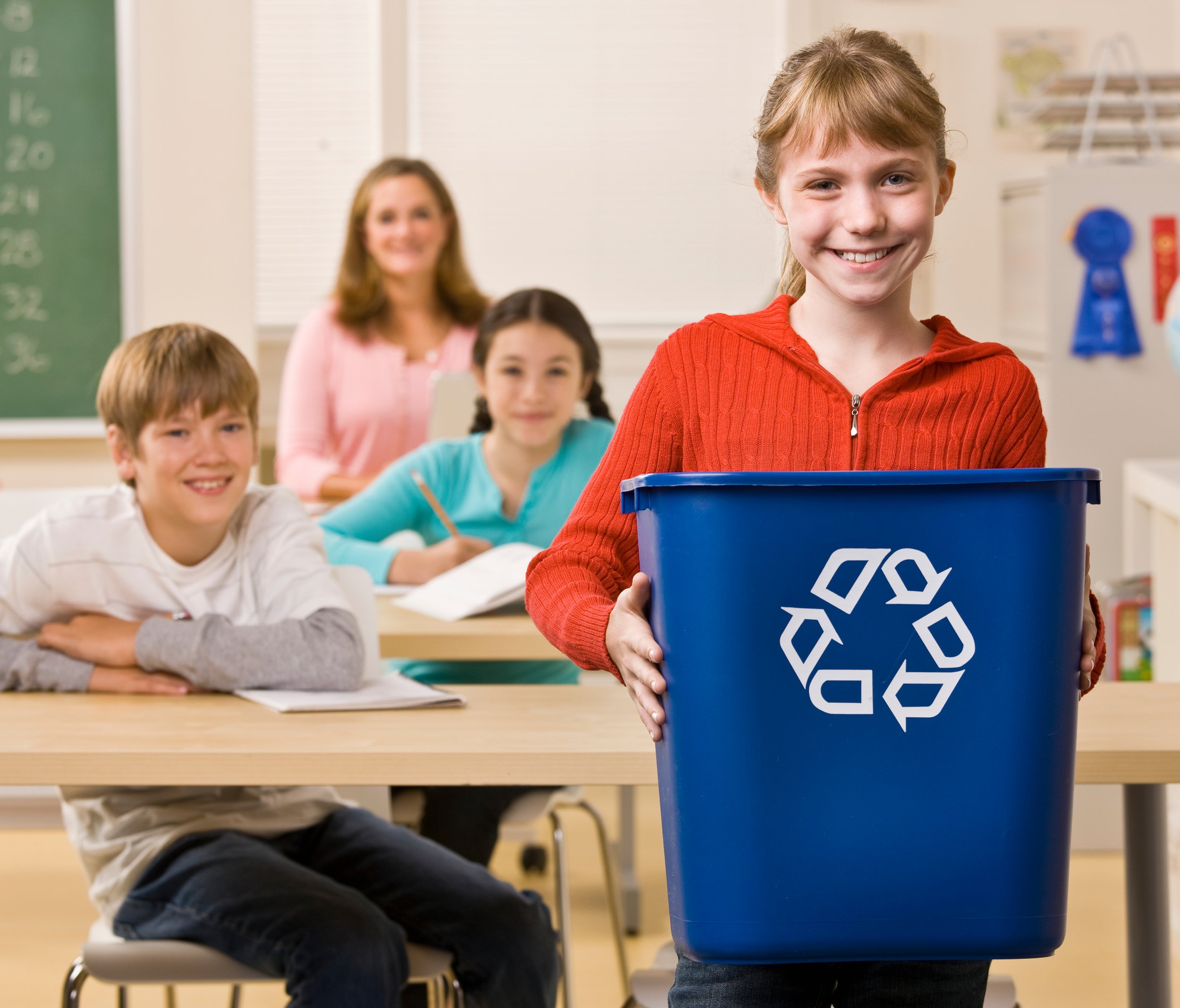Any organization, including schools, produces tons of waste. A study from Minnesota found that nearly 80% of all waste generated by a school could be recycled or composted. Teaching students how to manage resources responsibly is a great way to start promoting sustainability. In this article, we’ll explore how to enhance recycling efforts in your school, benefiting both students and staff now and in the future.
Have Bins Accessible and Visible
Before diving into larger sustainability goals, it’s essential to address communication and accessibility. If someone doesn’t know where to recycle in the first place, getting them to recycle at all will be exceedingly difficult. That’s why you’ll want to have the proper amount of recycling bins, such as one for each room in the building, in addition to a few throughout the hallways. Use distinct colors and clear labels or icons to differentiate recycling bins from regular trash. Place them near garbage bins for easy access, and add signage to reinforce that recycling is an option. Though it may seem obvious, it’s important to review your school’s specific layout and needs and not overlook a key detail.
Educate Staff and Students
As with any subject, you’ll need to properly educate your students on how to recycle and the importance of recycling. This can start with a brief announcement or be incorporated into the curriculum—perhaps in science or social studies classes. Showing what happens when we do recycle, or when we misuse our resources, can help drive the importance of recycling. It’s something practical that they can do at home, where parents may be able to help reinforce the practices they learned during the day.
It should come as no surprise that adults also need to remember best recycling practices. Teachers serve as role models, and students often turn to them for guidance and questions. Lead by example, as they say! If students do not know if a certain item should be recycled or what the numbers mean on their plastic items, they may turn to an educator for answers. That’s why it’s important to have your staff practice what they teach and to help students as they enforce their recycling habits.
Include More Types of “Recycling”
Recycling goes beyond single-use plastics. Composting organic waste, such as food scraps and biodegradable items like paper, is another important step. Having a separate bin for composting items, especially in the cafeteria, can be another way to enhance your recycling initiatives. You could potentially use the compost materials for a school garden or partner with a local organization or community member who will collect the compost for you. No matter the end result of your compost, teaching students that “trash” can be used for more than just tossing it in the trash can will be important for understanding what recycling is all about.
Increasing use of technology means disposing of it as well. Computers, phones, and tablets can be recycled, though they often require specialized handling. Work with organizations that can do the recycling for you, and use that partnership to explain to students how to properly dispose of electronics. Some organizations even provide reports showing how much has been recycled, which can help reinforce the impact of their efforts.
Encourage Student Involvement
Involving students in recycling initiatives fosters ownership and leadership. While you’ll need educators and custodians to help out, student involvement with these efforts can go a long way to implementing a system that will encourage recycling for years to come. Have them set goals and methods of educating the student body, and help with partnerships to give them experience in leadership and management. There are bound to be a least a few students interested, so have a way for them to get involved and assist with making your school known for its sustainability.
For more information about organizing a recycling team in your school, check out this guide from the Wisconsin DNR regarding recycling and waste reduction.
________
There are a lot of habits students form in their time in school that last with them throughout their lives. Recycling is just one of those things, but an important part of keeping the environment well-maintained. These efforts could lead students to careers in tangential fields if they make a big enough impact during their time in school. Through education and student leadership, recycling becomes a crucial part of the school experience, benefiting both the planet and the students themselves.
Check Out Our Vendor Partners!
Busch Systems
Busch Systems® is an innovative, passion-driven group of people who design, recommend and customize recycling, waste and organics solutions for different collection programs across various industries. We’ve been delivering recycling and waste solutions for over 35 years and are the #1 rated brand in the industry according to Trustpilot!
Digital R-E-D
At Digital R-E-D, our mission is to enable organizations with transparent digital sustainability. We assist in aligning technology and recycling in an innovative and relevant way so positive and impactful changes continue to show growth.
Total Technology
Total Technology holds the contract for device buyback focusing on mobile devices like laptops, Chromebooks, tablets, and mobile phones. Contracts typically give you special pricing on products you purchase. This contract helps organizations and agencies maximize the value they get back for devices they are decommissioning effectively putting funds back into their budgets.





